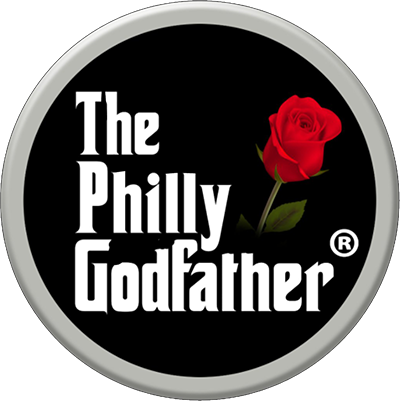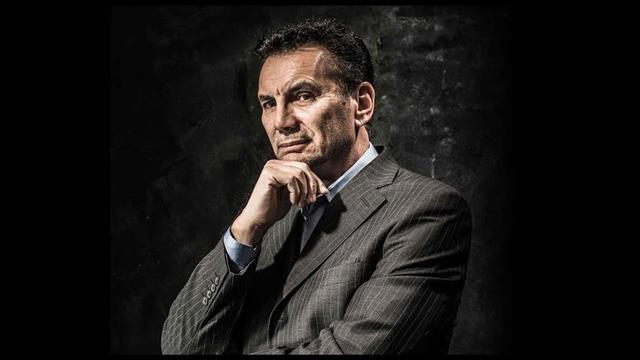A stage musical of mob history? Surely, you think, this is just another piece of inauthentic Vegas kitsch, a knockoff of a knockoff of the real thing. It’s got to be the mafia equivalent of what Zombie Burlesque is to post-apocalyptic horror—entertaining, sure, but no real substance.
But then the show’s narrator speaks, and you know this might be the most real thing in a town where star headliners have been known to lip sync and your free room might have a resort fee attached. Because the guy speaking is Michael Franzese.
There was a time when Nevada gaming regulators would be apoplectic about a guy like Franzese hanging out in a Las Vegas casino, much less producing a show in one. Son of high-ranking Colombo family member Sonny Franzese, Michael initially pursued a pre-med degree, but after making the decision to go on The Street, he rapidly moved up the mob hierarchy, taking the blood oath on Halloween night, 1975. Franzese quickly distinguished himself as a top earner, attracting the attention of not only mafia allies and rivals but also law enforcement.
Beating an indictment by then-federal prosecutor Rudy Giuliani, Franzese seemed to have a Midas touch, earning millions a week. But the law eventually caught up with Franzese, who pled guilty to racketeering charges in 1986. After paying his debt to society the former “Yuppie Don” walked away from organized crime. Since then, he’s found a second career speaking to a variety of groups, from high schoolers to business executives, about his life in crime and after. As the rare made man who stepped away without turning state’s evidence or entering witness protection, he can pull back the curtain on a world they’ve only imagined.
“They want to know about The Life,” Franzese says. You can hear the capital letters the way he says it. He’s talking about all the glamor and danger and intrigue that fascinates law-abiding citizens. In post-talk Q & As Franzese speaks freely, though by now he has practiced answers to the questions that, day after day, are asked: how many people did he kill? How accurate are mob movies? Did you know my Uncle Tony from Steubenville? But it’s not his answers that matter so much for the audiences—it’s just being close enough to ask the question.
“It’s the only royalty America’s ever had,” Franzese says when asked why the fascination, “but it’s definitely not a life to be glamorized. Out of the six guys who took the blood oath with me, I’m the only one who wasn’t murdered.”
Which might be part of the reason audiences are so transfixed. Sitting next to him in an airport, you might mistake the trim, athletic Franzese for a successful business executive who finds time to hit the elliptical machine. But his time on The Street has marked Franzese as something more than a guy with plenty of frequent flier miles. He’s a survivor of The Life, a sort of ambassador to an underworld most of us have only seen in movies.
Sharing The Life makes for a busy life. Franzese describes a brutal schedule of speaking engagements—Miami to Arkansas to Tennessee to Anchorage—that, combined with his appearances on stage in Las Vegas, has him working seven days a week. Each event is followed by an hour or two of speaking with a Q & A and up to three hours of meet-and-greets.
And yet we can’t get enough of The Life. The lines to shake Franzese’s hand and share a few words after an appearance rivals the queue for William Shatner at a Star Trek convention. Nine months ago, Franseze recorded an hour-long interview for Patrick Bet-David’s Valuetainment series. With over 5.1 million views, his is far and away the most-watched episode, blowing away Secret Service agent Clint Hill discussing the Kennedy assassination (under 1.4 million views), Mark Cuban (about 541,000), and Magic Johnson (just over 354,000).
Franzese couldn’t have picked a better town for his foray into theater. Las Vegas is exploiting the public’s love for goodfellas as a curious hyper-local form of cultural tourism, like the Mission architecture of California or a Civil War battlefield in Virginia. Since its 2012 opening, Mob Museum has ranked in the top 20 of national museums. With quality exhibits and a carefully curated set of artifacts including the brick wall that witnessed 1929’s St. Valentine’s Day Massacre and a courtroom that held hearings of the U.S. Senate’s anti-mob Kefauver Committee, the museum presents a balanced history of organized crime and law enforcement in the United States.
At the Plaza, though, visitors don’t have to settle for exhibits: they can see the real thing, and not just on stage. The casino’s steakhouse is named for Oscar Goodman, the former attorney for (reputed) mobsters who served as mayor of Las Vegas from 1999 to 2011. Since 2016 the restaurant has hosted a bimonthly dinner series, where guests can enjoy a gourmet three-course meal while listening to Goodman talk about his career. Some nights, a few of his associates whose careers he is discussing are in attendance.
In most cities, restaurateurs would be hard-pressed to find diners willing to sit through an attorney talking about his decades-old case load. But this is Las Vegas, and the subject is the Mob. How popular is the series? Well, you can get into the dinners, but only if you book your reservation early enough. Goodman might have some ways to go before he breaks Elvis Presley’s record-setting string of 636 consecutive sellouts at the then-Hilton (today, it’s the Westgate), but he’s The King to the Mob-obsessed.
So A Mob Story is in the perfect location. An afternoon at the Mob Museum, dinner with Oscar, and an evening with Franzese—to get any closer to the mob you’d have to become an unindicted co-conspirator.
Franzese is happy to share The Life with Las Vegas audiences, but he’s prouder that the show is a family affair. Directed by Las Vegas entertainment legend Jeff Kutash, Franzese’s children and his wife, Camille (who he met on the set of a film he and Kutash collaborated on in 1984), were involved with several aspects of the show’s creative development and continue to play important roles behind the scenes.
While the show has gotten raves from reviewers on its own merits, it’s also worth seeing as a signpost of just where America and the Mob are today. Before his arrest, Franzese might have been masterminding a million-dollar multi-state gasoline bootlegging scheme or funneling mob money into a cigarette smuggling operation. Now he’s working with his wife and kids, concerned about selling out the Plaza theater rather than rubbing out the competition. It’s as wholesome—and authentic—as Vegas gets.
A Mob Story gives the sense that, while we may be captivated by the mob, we have captured, maybe even tamed, the mob as well. While listening to Oscar Goodman tell stories of his battles with federal prosecutors, you can dine on a steak named for feared underworld enforcer Tony Spilotro. Names that were once spoken only with trembling lips now flash across the stage during a dance number during A Mob Story. A real made man politely answers even the most intrusive questions about The Life. The show is, on the surface, a tale of the mob’s history in Las Vegas, but it’s also a very real reminder of how obsessed we are with the mob today.
David G. Schwartz is a historian, Director of the Center for Gaming Research & instructor at UNLV, and former casino employee who writes about casinos, gaming, tourism, & Las Vegas.
This article is a reprint from Forbes.com. Read the original.







